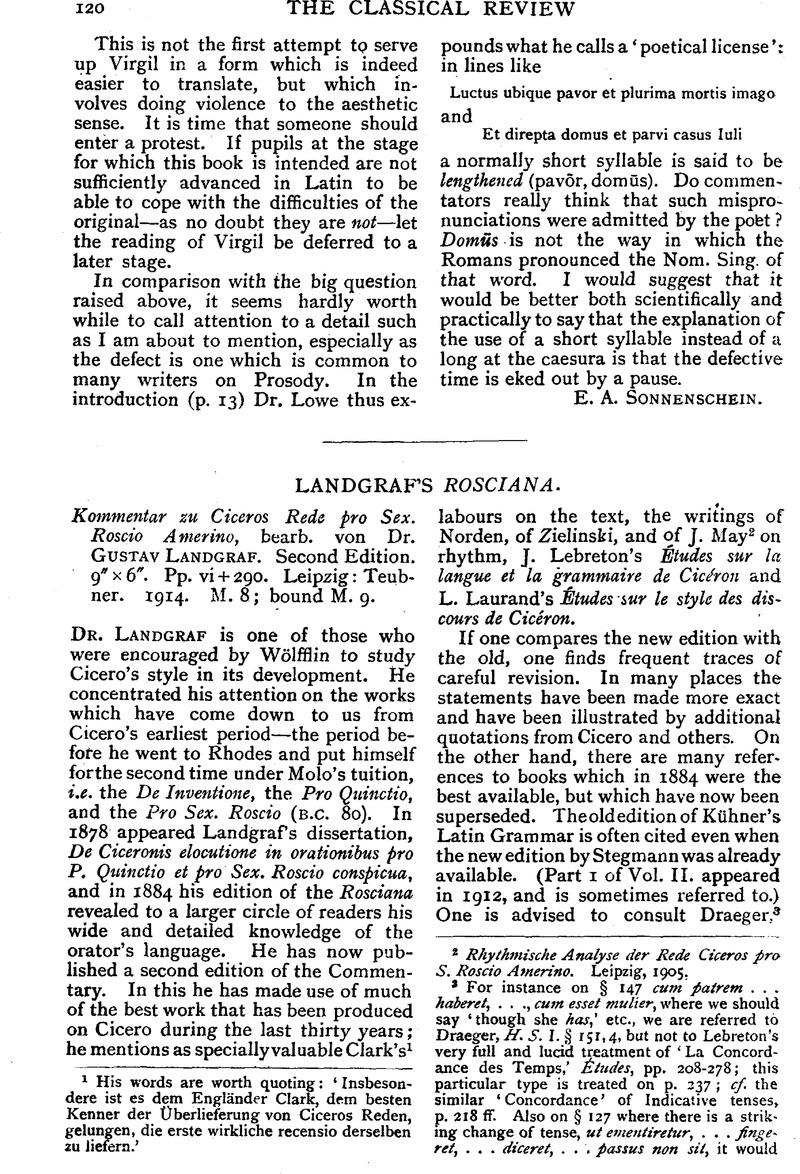No CrossRef data available.
Published online by Cambridge University Press: 27 October 2009

page 120 note 1 His words are worth quoting: ‘ Insbesondere ist es dem Engländer Clark, dem besten Kenner der Überlieferung von Ciceros Reden, gelungen, die erste wirkliche recensio derselben zu Jiefern.’
page 120 note 2 Rhythmische Analyse der Rede Ciceros pro S. Roscio Amerino. Leipzig, 1905.Google Scholar
page 120 note 3 For instance on § 147 cum patretn … haberet,…, cum esset mulier, where we should say ‘ though she has,’ etc., we are referred to Draeger, H. S. I. § 151, 4, but not to Lebreton's very full and lucid treatment of ‘La Concordance des Temps,’ Études, pp. 208–278; this particular type is treated on p. 237; cf. the similar ‘ Concordance’ of Indicative tenses, p. 218 ff. Also on § 127 where there is a striking change of tense, ut ementiretit, … fingeret, … diceret, … passus non sit, it would be well to refer to Lebreton, pp. 230 f., where all similar examples in Cicero are collected. In this connexion note a mistake in Landgraf's remarks on § 2, praerepiam velim. He says that this construction of the Perfect Infinitive or Participle with volo, though common in Cicero, does not occur in Caesar or Sallust. This is not true. Meusel's Lexicon gives two examples from Caesar: B. G. 1, 28, 1, si sibi purgati esse vellent; B. C. 1, 8, 3, veils Pompeium se Caesari purgatum; and Sallust has it in Jug. 110, 6, bellum ego populo Romano neque feci neque factum umquam volui.
page 121 note 1 The proof-reader has introduced somestrange mistakes; besides giving Sophocles this, spondee in the second foot he has in many places confused the references to the Orator and the De Oratore.